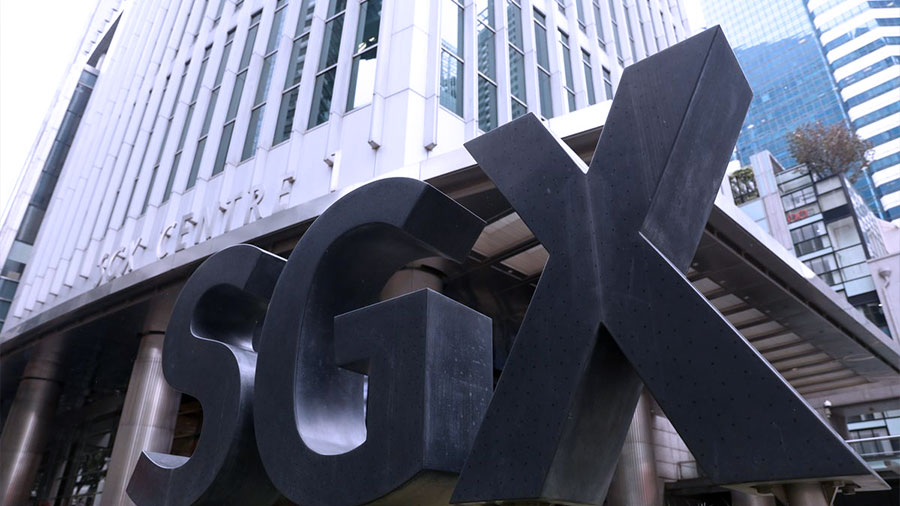Amid simmering geopolitical tensions between the US and China, the Singapore stock exchange could be poised to profit as Chinese firms look to hedge political risk while maintaining access to a large pool of international capital.
Despite having some 776 listings on the Singapore Stock Exchange (SGX), and being valued at US$622 billion, the SGX is relatively small compared to other major stock exchanges. The total value of all companies on the New York Stock Exchange (NYSE) is US$25 trillion, while the top 100 UK-listed firms are worth more than US$2 trillion. Further, the number of new listings dwindle in recent years; there have been, on average, just 13 listings a year since 2017.
To reverse this downward trend, the SGX has been stepping up talks with Chinese firms that are seeking alternatives to a US or Hong Kong listing and hedge political risk. In addition, the SGX is seeking to attract Southeast Asia’s tech-backed unicorns who are looking to tap the capital markets. According to Pol de Win, SGX’s head of global sales and origination, the exchange may see 30 to 40 first-time and secondary listings annually within the next five years.
Political risks in China
The majority of Chinese firms are listed on the three stock exchanges in mainland China: the Shanghai Stock Exchange, the Beijing Stock Exchange, and the Shenzhen Stock Exchange. The sizeable and popular Hong Kong Stock Exchange is being integrated into the other Chinese exchanges, but has distinct differences and generally provides greater access to international capital.
However, many Chinese firms have chosen to be listed outside of mainland China. The country has not fully liberalized its capital account, and cross-border capital flows are still subject to restrictions and controls. Moreover, the Chinese Communist Party (CCP) has a reputation for closely managing some of the country’s publicly traded companies. For example, in 2020, the CPP halted the Initial Public Offering (IPO) of Ant Group – an affiliate organization of Alibaba. A few months later, the government mandated that several publicly traded education companies change their status to nonprofit organizations. Other emerging market economies, such as Russia and Brazil, have experienced similar issues.
Risks for Chinese listings in the US
Chinese companies listed overseas, particularly in the US, have faced mounting challenges in recent years. In 2021, China introduced several measures to make overseas listings harder for Chinese firms under the guise of enhancing national security. Under proposals made in late 2021, authorities would be able to block companies from listing overseas if they thought the share sales would threaten national security – the measure is likely aimed at US listings amid increasing geopolitical tensions. This is yet to come to fruition, but the proposals remain valid.
But developments in the US are more pressing for Chinese firms already listed on the NYSE or NASDAQ. In December 2020, then-US president Donald J. Trump signed into law the Holding Foreign Companies Accountable Act (the "HFCAA"). The law addressed the government's long-standing concerns with Chinese auditing regulations and requires firms to disclose to the United States Securities and Exchange Commission (SEC) information on foreign jurisdictions that prevent the Public Company Accounting Oversight Board (PCAOB) from conducting audits.
In March 2022, the SEC began publishing a provisional list of foreign listings that the PCAOB is unable to audit. In early April, China Securities Regulatory Commission proposed removing a requirement that stated that on-site audits of Chinese companies with foreign listings can only be conducted by Chinese regulatory agencies. As many as 200 Chinese companies face de-listing unless the Chinese regulation changes accordingly.
What could this mean for Singapore?
With the US tightening disclosure rules, the Singapore exchange could regain ground after losing out to other hubs in recent years, partially due to liquidity concerns. Electric carmaker NIO, which has been threatened with US delisting, debuted in Singapore without raising funds in May. The firm said it would leverage “Singapore’s advantageous position as an international innovation and technology center,” and would ramp up its business operations in the city-state.
De Win told Bloomberg that the SGX is in talks with firms in China and Southeast Asia that operate in sectors including financial tech and consumer tech, as well as real estate investment trusts and blank-check companies around the world. Primary and secondary listings targeted by the SGX will likely have a market value of at least S$500 million (US$364 million).
According to Bloomberg, Singapore may also be attractive for black-check companies amid tightening US disclosure rules. As of June, three blank-check firms had been listed on the exchange this year. Meanwhile, the region is becoming a hub for tech-backed billion-dollar businesses. Many of these firms may soon be looking to list in the tech and innovation hub.
However, IPO activity has been lower than anticipated this year amid global market turbulence caused, in part, by Russia’s invasion of Ukraine, but also, more specifically to the region, such as unpredictable lockdowns in China. De Win expects activity to pick up towards the end of 2022, adding, “it’s very rare for markets to remain shut for three quarters in a row because, at the end of the day, people need access to liquidity.” He noted that the SGX pipeline is stronger than it has been in a long time.
Dual listings agreement
In a recent but relevant development, SGX said it was working with NYSE for dual listing of companies on both the bourses. The development would allow investors to tap overseas investment opportunities on the two major exchanges, similar to moves already developed with the London Stock Exchange (LSE).
“Dual listings between the NYSE and SGX Group benefit issuers by allowing them to tap into pools of capital in key markets outside of their home regions,” the two bourses said.
Alternatives overseas listings
Singapore is not the only option for Chinese firms looking to hedge political risk. The Hong Kong Stock Exchange is a major international bourse, allowing companies to tap international capital while providing access for Chinese investors. Companies with a dual primary listing in Hong Kong can apply to be included in stock connect. This is a real-time link to the city's bourse which allows mainland Chinese investors to buy stocks with greater ease.
The SIX Swiss Exchange, based in Zurich, is another alternative, albeit one largely removed from China and the ASEAN region. In late July, four Chinese companies became the first to issue shares in Switzerland via a China stock connect program. The companies raised about US$1.5 billion. According to CNBC, 10 Chinese-listed companies plan to offer shares in Switzerland following the introduction of the new stock connect program.
London is another option, being the oldest and most international of all exchanges globally. Some US$4 trillion worth of stock is listed on the exchange. The LSE has already attempted to enhance the access of Chinese companies to the UK exchange. The Shanghai-London Stock Connect scheme saw four transactions and over US$5.8 billion of volume in 2019 and 2020. The scheme allows companies on both bourses to list on the other exchange. However, while Chinese companies can raise fresh capital, UK-listed companies are only allowed to issue Chinese Depository Receipts (CDRs), which are backed by existing shares.





















